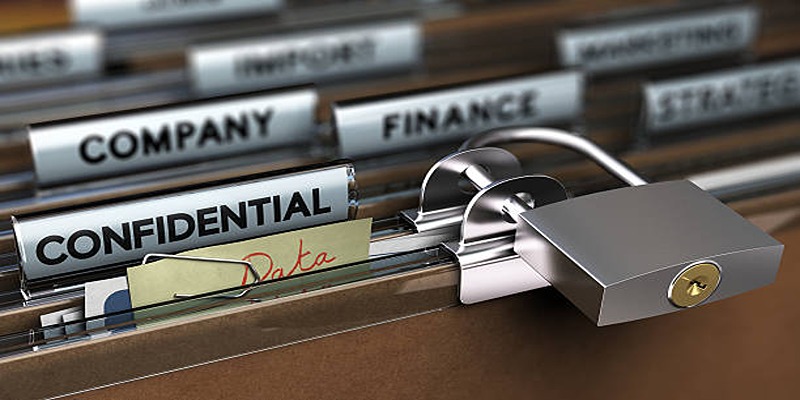In today's digital and fast-paced world, securing your vital documents has never been more important. Whether it's safeguarding your identity, preserving your financial records, or keeping personal information private, employing effective strategies to protect these essential documents is crucial. With the rise of cyber threats and identity theft, as well as the potential for physical damage due to unexpected disasters, taking proactive steps to ensure the safety and confidentiality of your documents is a necessity. This guide outlines 10 essential strategies designed to shield your important paperwork and digital files from unauthorized access and loss. From leveraging the latest in encryption technology to understanding the importance of secure storage solutions, we'll provide you with the tools you need to protect what matters most.
1. Use Strong Passwords
The first line of defense in protecting your vital documents is using strong and unique passwords. Avoid using easily guessable or common passwords, and instead opt for longer phrases with a mix of letters, numbers, and symbols. Additionally, consider implementing two-factor authentication when available to add an extra layer of security.
2. Encrypt Sensitive Digital Files

Encrypting sensitive digital files ensures that your private information remains confidential. This process transforms readable data into encoded information, which can only be accessed or decrypted with the correct encryption key. Utilize encryption software for both the files stored on your devices and those you send over the internet. Whether it's personal financial statements, legal documents, or private correspondences, encryption acts as a robust barrier against hackers and cybercriminals. Always keep your encryption software up to date to fend off the latest cyber threats.
3. Back Up Your Files Regularly
Backing up your files regularly is a critical step in safeguarding your vital documents against loss due to hardware failure, natural disasters, or cyberattacks. Employ a multi-layered backup approach by using both physical devices like external hard drives and cloud-based storage services. This strategy ensures that you have multiple copies of your important files stored in different locations, offering protection and easy recovery options. Consistently updating your backups and testing them for integrity should become a routine part of your document protection plan. By doing so, you can rest assured that your essential documents are secure and retrievable, no matter what unforeseen circumstances may arise.
4. Secure Your Devices
Investing in strong antivirus and anti-malware software for your devices is a vital step in securing your documents from digital threats. Keep these programs updated regularly to protect against emerging cyber risks continually. Additionally, make use of firewalls and other security features available on your devices to further enhance their protection.
5. Limit Access to Physical Documents
Physical documents can also be at risk of theft or damage if not properly secured. Keep important paperwork in a locked safe or cabinet, and only allow access to authorized individuals. If you need to dispose of any documents, make sure to shred them first to prevent identity theft.
6. Use Secure Communication Channels
When sharing sensitive information with others, ensure that you use secure communication channels. This could include encrypted email services or password-protected file sharing platforms. Avoid sending confidential documents through unsecured methods like regular mail or unencrypted messaging apps.
7. Be Cautious of Public Wi-Fi

Public Wi-Fi networks can leave your devices vulnerable to cyber attacks, making it easier for hackers to access your vital documents. Avoid using public Wi-Fi for any online activities involving sensitive information, and instead use a secure virtual private network (VPN) when accessing the internet outside of your home or office.
8. Regularly Monitor Your Credit
Monitoring your credit regularly can help you detect any fraudulent activity related to your identity or financial accounts. Consider signing up for a credit monitoring service or checking your credit reports at least once a year to stay informed and catch any unusual activity.
9. Educate Yourself on Security Best Practices
Staying informed about the latest security threats and protection methods is essential for safeguarding your vital documents. Cybersecurity landscapes evolve rapidly, and keeping abreast of new hacking techniques, phishing scams, and malware threats can empower you to better defend your sensitive information. Consider subscribing to reputable security newsletters, attending webinars, or participating in community forums dedicated to cybersecurity. Educating yourself and your family or colleagues about recognizing suspicious activities, such as phishing emails or fake websites, can significantly reduce the risk of security breaches.
10. Use Secure Storage Solutions
Opting for secure storage solutions is the final, yet equally critical, strategy in protecting your vital documents. This means selecting cloud services that offer high-level encryption, two-factor authentication, and reliable backup options for your digital files. For physical documents, investing in fireproof and waterproof safes or safety deposit boxes at a bank can provide an added layer of protection against natural disasters or home theft. It's not enough to simply have secure storage; you must also be diligent about which documents you choose to store and regularly review your inventory to ensure that everything is current and accounted for.
Conclusion
Protecting your vital documents requires a multi-faceted approach that includes strong passwords, encryption, regular backups, secure devices and communication channels, limited physical access, caution with public Wi-Fi, credit monitoring, staying informed about security best practices, and utilizing secure storage solutions. By implementing these strategies consistently and continuously updating them as needed, you can ensure that your important documents remain secure and confidential. Don't wait until it's too late start implementing these measures today to safeguard your essential information. So, keep your document security a priority, and always be vigilant in protecting this sensitive information from potential threats.




